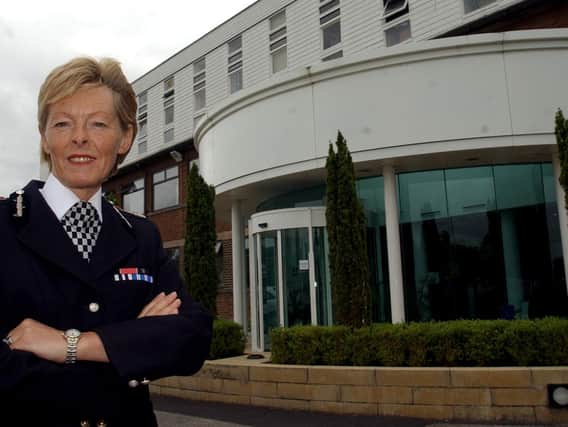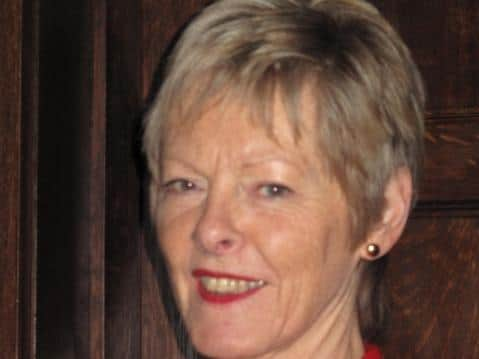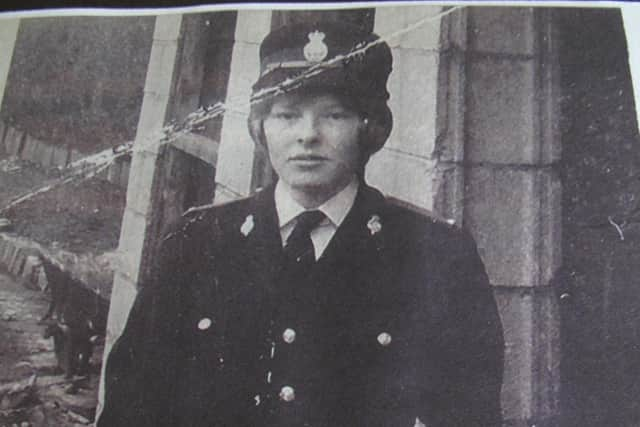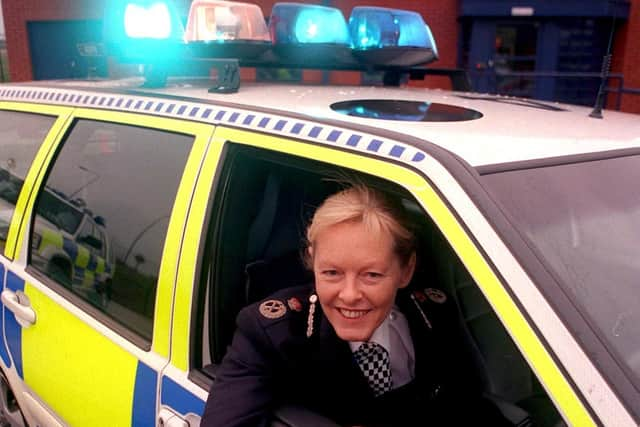Pauline's journey from first female Chief Constable to executive coach


Sunday is a significant date for Pauline Clare.
“Thank you for reminding me” says the pioneering former Chief Constable, now 72, who, since leaving the Lancashire Constabulary has created a second high flying career for herself as an executive coach.
It’s not that she doesn’t appreciate how significant it is that she was the first female Chief Constable ever. Rather that, while it is indeed exactly 25 years since her appointment was announced, she has a different life now.


Advertisement
Hide AdAdvertisement
Hide AdRecalling how she felt when she was named Chief Constable she says: “They were all really positive feelings. I felt so happy. I felt quite pleased with myself that I had been able to achieve this. I felt happy to return to Lancashire. I was coming back to the county I loved, that I feel passionate about and I was working in a county where I was born and brought up and where I still live.
“I think you have a real opportunity to bring about change in that position...how I left it in 2002 it was assessed by HMI (Her Majesty’s Inspectorate) as the best performing force in England and Wales.”
Her rise up the ranks saw her serving in Lancashire, Merseyside and Cheshire. But her story started in Chorley where she became a police cadet at the age of 17 in 1964, becoming a Police Constable in 1966.
Her dad was a Co-op butcher and his job brought the family to Ribchester for a while, where she attended the local junior school of St Peter and St Paul’s, then back to Chorley where she was a pupil at St Mary’s primary school, Chorley and at Leyland St Mary’s secondary modern.


Advertisement
Hide AdAdvertisement
Hide AdShe worked in Southport and Kirkby, and on local government reorganisation found herself working for the Merseyside Constabulary, staying in that force for some 27 years. During her career she served in every uniformed rank, including becoming an Assistant Chief Constable before becoming Deputy Chief Constable in Cheshire.
Pauline says: “I think like a lot of other people, women in particular, I tend to take one step at a time. When I joined, prior to the Sex Discrimination Act, women couldn’t be a Chief Constable...When I was Deputy Chief Constable then I started thinking about ideally where I wanted to go.”
With her sights set on Lancashire’s prized post she recalled: “I prepared really well. I was so determined to get it. I did it three ways - first getting up to date on contemporary policing issues, second spending time at County Hall in Preston researching the issues the police authority were dealing with and reading up about the Constabulary. The third point, perhaps a lot of people don’t do, preparing themselves - I know this from coaching. (It’s) thinking about the sort of impression you want to create of yourself. What’s important to you, what will be important to them and ensuring during interview you give as much of yourself as you possibly can.”
This will mean, she says, that those appointing will know clearly what kind of person you are, the approach you will take and whether you will fit into their top team. It is, she stresses, the exact opposite of being shy and retiring: “The police service isn’t like a business, but it operates in a business like way and successful businesses are all about relationships. Relationships are built by getting to know people better and developing a trusting open relationship where you can say what’s needed to be said.”


Advertisement
Hide AdAdvertisement
Hide AdShe did not, she recalls, encounter opposition within the Constabulary when she took up her appointment, but recognised that some of the force’s pensioners were “a bit wary about having woman in charge”.
But she acknowledges there may have been some tensions when colleagues realised: “I was different and I had a different approach to leadership. When you’re bringing about change you have to work differently as well as do different things. It was massive significant change within the Constabulary. It was top to toe. We looked at every single aspect of what we were doing.”
This ranged from reviewing the organisation’s culture and technology to its disciplinary proceedings. It was she says about: “trust and openness and challenge and accountability as all part of transformational leadership. I was really putting people at the heart of what we were doing.”
Under her command crime figures went down and then rose. She notes that “ethical recording” had an impact on those figures and that was another thing she changed: ”We were very clear how we recorded crime and we weren’t recording burglary as acts of damage...it’s all about transparency.”
Advertisement
Hide AdAdvertisement
Hide AdIn the same way she argues that the number of recorded racial incidents went up because people felt confident in reporting them: “Then they went down because we worked in relationship with all sorts of other organisations and community representatives to work to achieve reduced figures.”
Following the death of George Floyd in America she stresses: “Having a better mix of people in the police service, of people from all walks of life it’s so important.”
She believes all organisations must now review their records in this context. The acknowledgement of the importance of diversity is not new for her. She says: “We were one of the first police forces in the country to introduce a black police association. They made the approach to me and (we had) a gay and lesbian association as well. We were really respectful of diversity of whatever nature because it brings creativity and different ideas and different approaches.”
But she says she is not in favour of positive discrimination: “You’ve got to be very clear about the criteria you’re going to use about selection.”
Advertisement
Hide AdAdvertisement
Hide AdA combination of ambition and an interest in what makes people tick was evident early on. While working as a police officer in Liverpool she took an A’level at night school in psychology. Later in her career she was to study for an Open University degree in psychology.
It was while she was juggling the degree, home life and policing that she applied for and failed a senior promotion hurdle after the three day extended interview process. She realised she had too much on: ”When I went back the second time I had finished the OU work. I was in a far better place to be able to concentrate on that.”
At 55, on completing the permitted seven year contract, she recognised she was not ready to retire, so retrained as a coach: “I bring the experience of working as the equivalent of a Chief Executive Officer and the other element I bring is psychological mindedness...When I’m working with people I attempt to gain an understanding of what’s going on for them, what are they thinking about an issue, how they are feeling about an issue, their impact on me and how I feel. I think what I had and what I still have is empathy...It’s usually something psychological that’s at the root of coaching.”
When she was Chief Constable she had some coaching herself and saw how helpful it could be: "It makes you more self aware.”
Advertisement
Hide AdAdvertisement
Hide AdIt made her realise too that a lot of organisations miss out on emotional intelligence: “They tend to do high end operational stuff and don’t take notice of how they as people are feeling and what’s going on with other people. That’s one of the key things that’s critical to the success of an organisation.”
Pauline Clare Ltd has, she said, never had to advertise. Currently the Ribble Valley based coach, who is married to lawyer Stuart, and has two stepdaughters, is working with the National Health Service.
She is also chair of Mawdesley based charity Rainbow Hub.
Pauline has no set date for retirement but says: “What I’m doing is gradually tailing off. I'll know when it feels right.”
One thing is clear, whatever she does, she will be speaking up for Lancashire. She says: "There’s so much good in this county, so many people achieve great things. I suppose I want to fly the flag for Lancashire and the north west.”